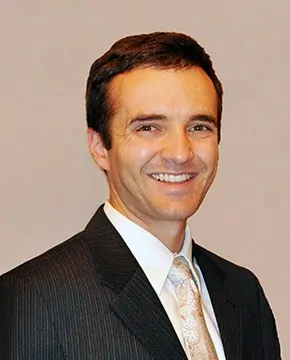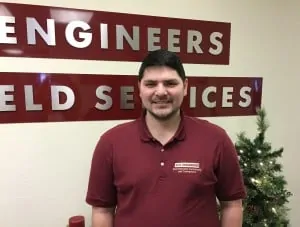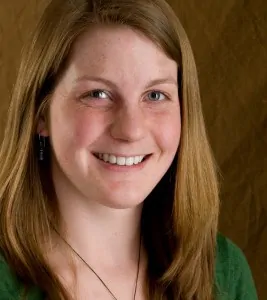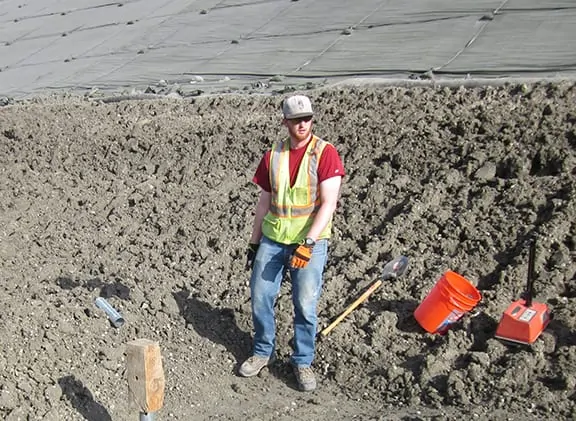

This innovative sustainable materials management approach involves strategically picking up loads from businesses that generate similar types of discards. The linked article discusses the approach of following simple procedures governing selective routing in the commercial space.
Using a phased methodology, it is possible to turn a high-disposal garbage collection system into a high-diversion recycling system, without incurring additional costs or losing collection revenue. Dumpsters behind shopping plazas and other sites can become opportunities at the center of a thriving materials recovery program.
About the Authors:
Richard Gertman is the owner of For Sustainability Too in San Jose, CA.
Tracie Onstad Bills has been in the Environmental and Resource Material Management Field for over 20 years. Her expertise revolves around commercial recycling technical assistance, environmental purchasing, large venue and event zero waste programs, research and sustainability planning, garbage hauler franchise compliance and review, construction and demolition program / ordinance analysis and writing, climate inventory compilation, research and feasibility studies to help clients with comprehensive waste prevention and zero waste programs. Ms. Bills has a BA in Environmental Science from San Jose State University, is a CRRA Board member and belongs to the SWANA Gold Rush Chapter, National Recycling Coalition and the Northern California Recycling Association. Contact Tracie here.
The drainage layers of landfill final covers normally go through a rigorous flow capacity evaluation. This evaluation is necessary to ensure that the volume of water reaching the drainage layer due to percolation of precipitation water through the final cover upper soil layer will not overwhelm the drainage layer in its flow path. If the flow volume in the geocomposite drainage layer is greater than the capacity of the drainage layer, water will exit the geocomposite and enter the overlying soil. The water entering the soil layer can easily saturate the lower portion of the soil layer, which will affect the stability of the slope. The geocomposite should always be designed to have a flow capacity greater than the flow rate of water running through it.
Concave areas of a landfill slope experience flow patterns quite different from slopes that go straight down. Slopes with concaved geometry have an unequal crest and toe lines – the toe line being smaller than the crest line. As a result, the width of the concaved slope decreases as the distance from the crest line increases in the downward direction. The narrowest width of the concaved slope is at the toe of the slope. The drainage layer on the slope experiences the same width change from the crest line to the toe line. This means that the overall width of the channels that carry water within the geocomposite drainage layer decreases toward the toe line, and, therefore, the depth of water in the channels increases. This phenomenon is referred to as flow convergence, and the convergence is toward the vertical centerline of the concaved slope. The flow convergence may be significant enough to increase the water depth in the geocomposite in the vicinity of the vertical centerline of the slope to greater than the thickness of the geocomposite. That, in turn, forces water out of the geocomposite and into the overlying soil, which may result in slope stability problems.
To complement the geocomposite flow capacity along the vertical centerline of the concaved slope in order to accommodate the higher water flow rates in the system, a pipe-gravel-geotextile (a burrito) may be constructed along the vertical centerline of the slope. The burrito, which would be positioned directly over the geocomposite drainage layer, increases the flow capacity of the system at and in the vicinity of the vertical centerline of the concaved slope. The burrito will receive water from the geocomposite where the water depth exceeds the geocomposite thickness. The burrito will be connected to the toe drain system at the toe of the slope, and water in the burrito will be discharged to the toe drain. The water in the toe drain, in turn, leaves the final cover through lateral drain pipes at regular intervals.
It should be noted that not every concaved slope requires a burrito. Some concaved slopes may be fairly wide, and the convergence of water inside the geocomposite may not be significant enough to cause the depth of water to exceed the geocomposite thickness. But, if the concavity of the slope is significant, a severe convergence of water in the geocomposite drainage layer is more likely. In that case, a burrito along the vertical centerline of the concaved slope is highly recommended.
A cautionary construction related note seems to be appropriate at this point. During construction, extra care should be taken to ensure that all geocomposite panels within the boundary of the concaved slope run such that the machine direction of the panels follows a path from the top toward the bottom of the slope. If some geocomposite panels are installed with the machine direction running across the slope width, significant turbulence in the flow will be created at the point where panels running in one direction transition to the panels running in the other direction. The turbulence will reduce the flow capacity of the geocomposite.
If you are planning to install a final cover over a portion of the slope that has concaved geometry and you want your final cover design to properly address flow volumes in the geocomposite drainage layer, please contact us. SCS Engineers has extensive experience with these types of circumstances, and we will gladly review your case and make recommendations. Learn more here.
If you have comments or questions about this article, please contact Dr. Ali Khatami.
Ali Khatami, Ph.D., PE, LEP, CGC, is a Project Director and a Vice President of SCS Engineers. He is also our National Expert for Landfill Design and Construction Quality Assurance. He has nearly 40 years of research and professional experience in mechanical, structural, and civil engineering.
Dr. Khatami has acquired extensive experience and knowledge in the areas of geology, hydrogeology, hydrology, hydraulics, construction methods, material science, construction quality assurance (CQA), and stability of earth systems. Dr. Khatami has applied this experience in the siting of numerous landfills and the remediation of hazardous waste contaminated sites.
Dr. Khatami has been involved in the design and permitting of civil and environmental projects such as surface water management systems, drainage structures, municipal solid waste landfills, hazardous solid waste landfills, low-level radioactive waste landfills, leachate and wastewater conveyance and treatment systems. He is also involved in the design of gas management systems, hazardous waste impoundments, storage tank systems, waste tire processing facilities, composting facilities, material recovery facilities, landfill gas collection and disposal systems, leachate evaporator systems, and liquid impoundment floating covers.
Penton’s Waste360 Unveils the Next Generation of Leaders in the Waste and Recycling Space Award

The Waste360 “40 Under 40” awards program recognizes inspiring and innovative professionals under the age of 40 whose work in the waste, recycling, and organics industry has made a significant contribution to the industry. Dave Hostetter focuses on designing landfill gas systems and landfill gas flare systems. Although still considered a young professional himself, he serves as a mentor to other engineers, providing guidance with hands-on design as well as professional guidance.
Dave is a LEED® Accredited Professional (LEED AP) and a Certified Energy Manager (CEM). He brings to SCS Engineers an abundance of expertise and fresh ideas. Dave has a keen eye for troubleshooting and diagnosing control system issues. He serves SCS clients wholeheartedly and goes out of his way to provide assistance as well as the expertise needed to make their day-to-day operations run as smoothly as possible. Dave has participated in a multitude of landfill gas and leachate system designs, including designs for blower and flare stations, wellfields, gas conveyance piping, leachate pumping systems, and groundwater extraction systems. His vast and varying experience, honest and hard-working approach to projects, and his positive attitude make him a respected resource within the firm.
Dave lives the SCS mission, and clients trust him for his honest and comprehensive approach to their challenges. Dave takes ownership of his work and puts in the time and effort to deliver excellent results and maintain a great relationship with his clients. “Dave Hostetter sets the example of how an honorable, dynamic, and experienced engineer should act at SCS,” said Paul Mandeville, Senior Vice President and Director of SCS’s offices on the east coast. “Dave serves as a model of what young professionals and students should strive to become in their professional and personal careers; we are very proud of him.”
Please join SCS in congratulating Dave Hostetter on his recent recognition by Waste360.
Thirty-four senators and 171 representatives argue in a brief filed February 23, that the EPA overstepped its boundaries in creating the carbon-cutting Clean Power Plan. In short, the brief states that they feel that Congress never gave the EPA a clear statutory directive or authority to transform the nation’s electricity sector. The brief points out that the EPA seeks to make “decisions of vast economic and political significance” under a “long-extant statute,” and in doing so must point to a “clear statement from Congress.”
Yesterday’s brief comes just two weeks after the U.S. Supreme Court ruled the EPA cannot begin enforcing the rule until legal challenges filed by 25 states and four state agencies are resolved.
The D.C. Circuit Court of Appeals will hear oral arguments on the merits of the states’ case on June 2.
With the brief it is clear that the Clean Power Plan is not only facing legal challenges but also political ones. It may be left for the next Administration to pick up this pieces and decide the fate of the Plan.
SCS Engineers presents a behind-the-scenes look at the special people who make us thrive and the roles they play within the organization.

Andrew Ard’s interest in the environment started when he was a junior in high school. He took a required environmental science class and it opened his eyes to opportunities he was truly interested in pursuing. His interest led him to enroll in a five-year Environmental Engineering Master’s program at Texas Tech University. During his studies, Andrew discovered he wanted to explore more about landfill work so he seized the opportunity as an intern with the leading company in the solid waste industry: SCS Engineers.
Andrew remembers as an SCS intern, he was given the opportunity to work on projects under the supervision of engineers. Also, he was given a view of how an engineering consultancy worked and it prepared him for a career once he graduated from university. Now as a Staff Professional, Andrew enjoys a variety of projects at SCS which includes construction and design planning, while utilizing programs such as AutoCAD/Civil3D, or reviewing and implementing regulations. One of the reasons he decided to stay and start his career as a young professional after receiving his masters was the passion he saw in SCS employees.
At SCS, Andrew states that everyone is very passionate about what they do. They truly enjoy and are proud of their work. Furthermore, SCS is very fast-paced with lots of projects. Some may not enjoy the high-pressure environment, but he thrives on learning something new every day. He remarks that his supervisors assign their employees just the right amount of work and they place them in a position to succeed. Also, with SCS being an employee-owned ESOP company, Andrew really feels that he is invested in the company and its success.
For future SCSers hoping to succeed, Andrew has this piece of advice: “Make sure you ask a lot of questions. If you’re not sure about something, ask and learn; there are multiple people that you can go to with your questions. It’s a really free-thinking environment. If you are a young adult looking to get into the solid waste industry, there’s no better place to learn than SCS.”

If a future with an organization like SCS Engineers and a career path like Andrew’s is something you’re interested in, please visit the SCS Careers Page for all of our available job openings.
SCS Engineers presents a behind-the-scenes look at the special people who make us thrive and the roles they play within the organization.

Meghan Blodgett has always been interested in science and the outdoors but it wasn’t until she took a Geology course at Amherst College that she realized she could integrate both of her interests into a career. After receiving her bachelor’s degree in Geology and her master’s degree in Hydrogeology from the University of Wisconsin-Madison, Meghan started her career at SCS Engineers as a hydrogeologist.
Meghan says her favorite aspect of working at SCS is the variety of projects that she is involved in. From large complex developments to smaller remediation assignments, Meghan has been able to work with a number of clients on very diverse sites. Working at SCS is never boring, she says. No two clients or projects are the same. Furthermore, her field is constantly evolving and she has to stay on her toes to stay ahead of new laws and regulations.
Meghan says she genuinely enjoys what she does every day. The work in the field and her interaction with the field staff is a very hands-on experience she would not have been able obtain in a classroom. She explains that while there are busy seasons throughout the year when numerous projects come up at one time, her project managers are great at distributing the workload and encouraging her to be involved in different ventures.
Management constantly inspires employees to develop professionally, so Meghan has taken additional courses and has been able to continue her education using SCS’s tuition reimbursement program. She is also preparing to take the Professional Geologist exam in spring of 2016.
When asked what has made her a successful SCSer and if she can provide advice to any future employees, Meghan states, “Don’t be afraid to speak up. If you see an opportunity you want, ask about it. If a project manager has a project you’re interested in or there is a class you want to take, don’t be afraid to go after it. The managers will most likely say yes.”

If a future with an organization like SCS Engineers and a career path like Meghan’s is something you’re interested in, please visit the SCS Careers Page to see our available job openings.
SCS Engineers presents a behind-the-scenes look at the special people who make us thrive and the roles they play within the organization.
Vice President Dana Murray recently celebrated her 20 year anniversary with SCS Engineers. Dana started at SCS Engineers after receiving her Bachelor’s degree in Civil Engineering at Old Dominion University. Initially hired as a Staff Engineer, Dana worked her way up to Project Engineer, to Project Manager, to Project Director and now Vice President.
One of Dana’s biggest roles through her years at SCS is being the Program Director for the prime contract with the Environmental Protection Agency’s Landfill Methane Outreach Program. This includes an international effort such as helping cities to reduce their methane gas output or designing landfills. She states that this is “very powerful work” and our efforts make a difference in the lives of the citizens in developing countries.
Dana attributes her long-lived success to how supportive SCS Engineers is to its associates. The management is very encouraging to their entry level engineers and employees. Also, not only are the SCS personnel smart, hard-working and passionate about their projects, they are supportive of each other’s work as well. In 1997, Dana took 5 years off to be with her children and she was welcomed back to SCS to continue her career when she wanted to return to the workforce.
In Dana’s opinion, this network of support is what sets SCS Engineers apart from other companies. The fact that SCS has almost 800 employees but still possess a small company feel is rather unique. Furthermore, Dana states that what SCS does best is giving their employees opportunity to grow. She remembers that when she was a young engineer, she craved having a project to herself. She got the opportunity because SCS is involved in a wide variety of projects.
Engineering seems to be in Dana’s blood; her father was a partner in an engineering firm, and now her two sons are both studying engineering in college. One piece of fatherly wisdom that Dana continues to take to heart is, “as long as you produce good work, it doesn’t matter if you’re male or female.” When asked if she had any like advice for future SCSers, she encourages everyone to “ask a lot of questions.” Dana continued, “employees should not hesitate to ask questions of their managers if they are unsure of what to do. Manager and employee are intended to work closely together, and only when they do, can they both succeed.”

If a future with an organization like SCS Engineers and a career path like Dana’s is something you’re interested in, please visit SCS Careers Page for all of our available job openings.

Sam began his career at SCS in September 2010, just following his graduation from Washington State University with a BS in Civil/Environmental Engineering and a background in Technical Illustration. Despite receiving job offers from larger engineering companies, Sam chose to work with SCS Engineers. When asked what attracted him to SCS over other companies Sam replied, “The main draw was the size of SCS Engineers and the ability to work on a wide variety of environmental projects.”
SCS Engineers is growing and highly rated by clients and industry. As SCS grows, the company maintains the spirit of entrepreneurship because SCS values authenticity, humanity, and creativity in individuals. Sam preferred the opportunity to expand his experiences beyond a singular practice, gaining proficiency in multiple environmental fields.
Now, after 5 years as a Staff Professional, Sam’s been involved in multiple practice areas at SCS. He has served as an integral part of a team, on a diverse range of projects from groundwater to gas monitoring to large construction. Always a problem-solver, Sam is able to combine his technical skills toward solutions in a profession he enjoys. With 5-years of experience under his belt, Sam is focusing on what interests him as a professional and the specialty area to focus the rest of his career.
His advice to future SCS employees?
“Explore and enjoy the SCS dynamic environment. Don’t think that there is just one solution to a problem: there are always newer, better, and more efficient ways to tackle a challenge. Also, find your niche within SCS and make it yours; make yourself valuable to the company’s clients.”
When asked what advice he can offer to job seekers, Sam said, “Keep your expectations realistic and be prepared to put in the work to accomplish your goals.”
Sam is currently preparing for his Professional Engineer exam in Civil: Water Resources.
Thank you, Sam.

If a future with SCS Engineers and a career path like Sam’s is something you’re interested in, please visit the SCS Career Page for all of our available job openings.